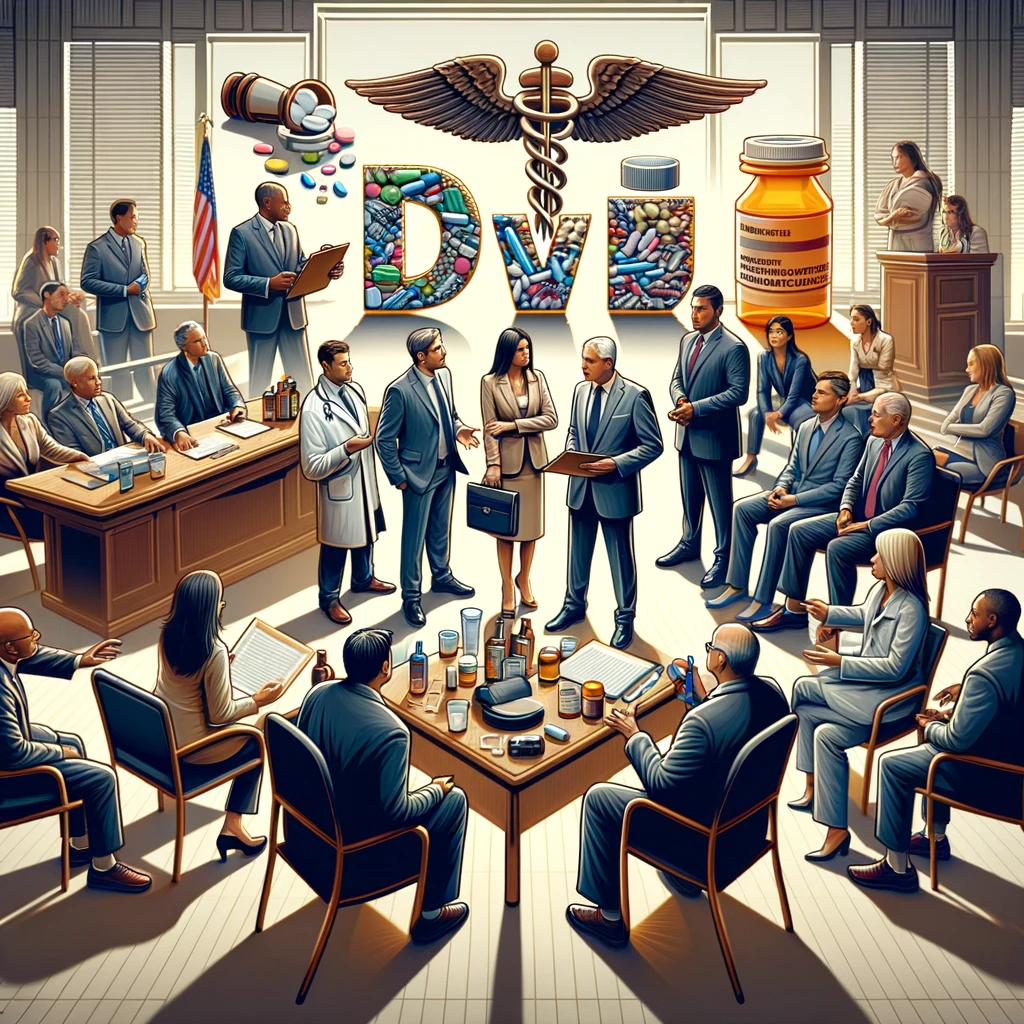
Driving While Intoxicated (DWI) in Texas is a significant legal issue, especially when involving prescription drugs. This comprehensive examination will provide insights into the complexities of Texas DWI laws, focusing on prescription drug influences. Our aim is to educate and enlighten readers on this crucial subject, ensuring a deep understanding of the legal landscape. With a legal perspective on prescription drugs and DWI laws in Texas, let’s explore further.
A Legal Journey: Navigating Through Texas’s DWI Maze with Prescription Drugs
Imagine cruising through the vast Texas landscape, the sun dipping low, radio humming your favorite tune. Life feels good, right? But then, imagine if earlier that day, you had taken medication prescribed for your seasonal allergies. Suddenly, those feel-good vibes could lead to an unexpected detour: a Texas DWI charge due to prescription drug use.
In Texas, the DWI laws don’t just frown upon alcohol; they extend their stern gaze to prescription drugs too. This might sound surprising, but yes, your legal, doctor-prescribed medication could land you in hot legal waters if it impairs your driving.
Why should you keep reading about A Legal Perspective on Prescription Drugs and DWI Laws?
Well, if you’ve ever popped a pill for a headache before driving, or if you’re just curious about Texas’s unique stance on DWI laws, this is the article for you. We’re diving deep into the heart of Texas DWI laws, where prescription drugs blur the lines of legality behind the wheel.
In a nutshell, the main subject here is the complex dance between prescription medication and DWI laws in Texas. We’ll explore how these laws affect your driving, the potential consequences, and how to navigate the legal landscape if you ever find yourself in a pickle. So buckle up and enjoy the ride through the legal intricacies of Texas DWI laws, where knowledge is your best defense!
The Intricacies of Prescription Drugs on Driving Skills
The influence of prescription medications on driving cannot be understated. Certain drugs, such as sedatives, painkillers, and antipsychotics, can impair cognitive and motor functions, akin to alcohol. Texas views this as a substantial risk to public safety. Recognizing these effects is crucial for drivers, as the law holds them accountable for their condition behind the wheel.
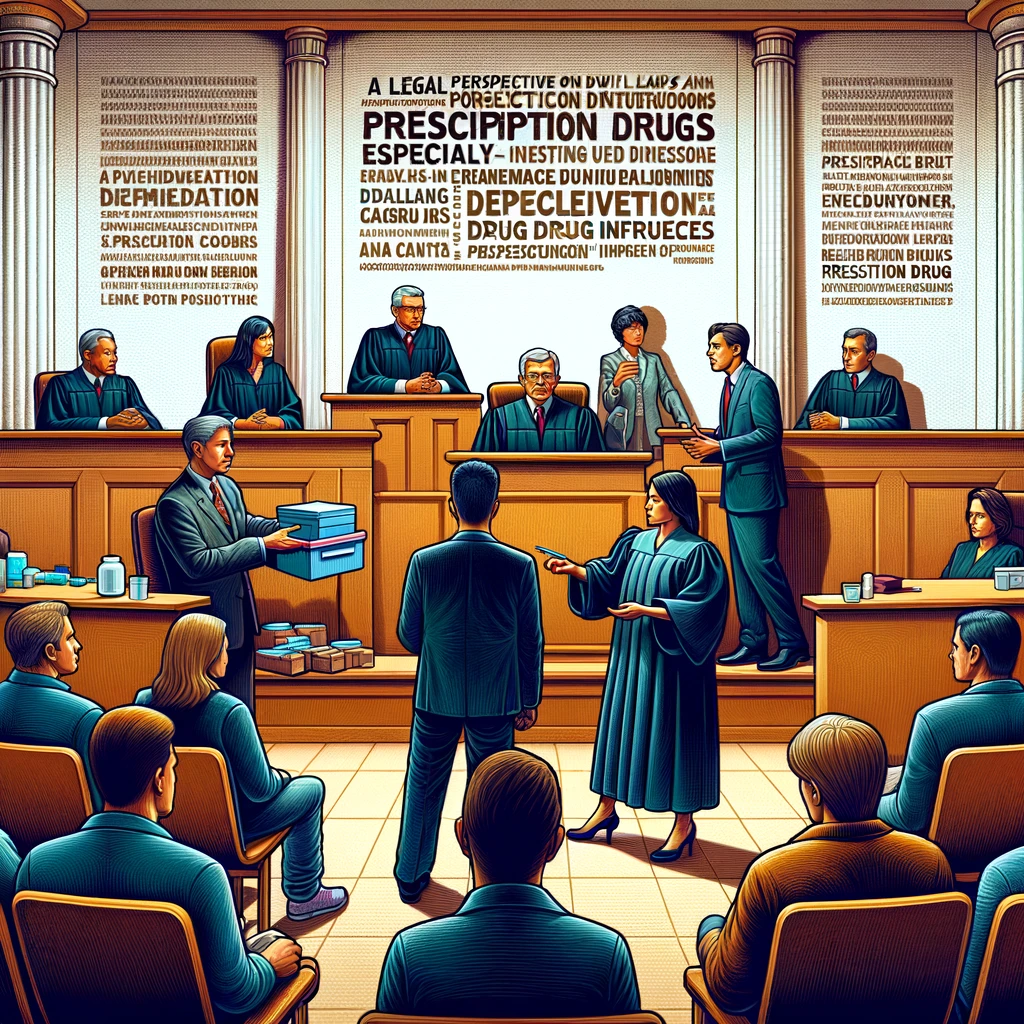
Navigating Legal Waters: Prescription Medications and Impairment
Texas laws do not differentiate between sources of impairment. Whether from alcohol, illegal drugs, or legal prescriptions, impairment is impairment. The state lacks specific metrics for prescription drug levels, unlike the clear 0.08% blood alcohol content for alcohol. This ambiguity places a premium on law enforcement discretion and subsequent chemical testing to ascertain impairment levels.
Facing the Consequences: DWI Penalties in Texas for Prescription Drug Influence
Penalties for DWI due to prescription drugs mirror those for alcohol-related offenses in Texas. First-time offenders could face fines, jail time, and driving license suspension. Subsequent offenses carry more severe penalties. It’s pivotal to understand that legality of prescription does not exempt from prosecution for DWI.
| Offense Type | Penalties in Texas |
| First Offense DWI | – Fines up to $2,000 – Jail time: 3 days to 6 months – License suspension: up to 12 months |
| Second Offense DWI | – Fines up to $4,000 – Jail time: 1 month to 1 year – License suspension: up to 2 years |
| Third Offense DWI | – Fines up to $10,000 – Prison time: 2 to 10 years – License suspension: up to 2 years |
| DWI with a Child Passenger | – Fines up to $10,000 – Jail time: 180 days to 2 years – License suspension: additional conditions may apply |

Crafting a Defense: Strategies in Prescription Drug DWI Cases
Defense in prescription drug-related DWI cases often hinges on challenging the evidence of impairment. Legal defenses may include questioning the validity of field sobriety tests or presenting medical testimony to refute claims of impairment. Each case requires a tailored approach, considering the unique circumstances and evidence presented.
The Critical Role of Drug Recognition Experts in Texas
In Texas, Drug Recognition Experts (DREs) are pivotal in identifying drug-induced impairment. Their training enables them to detect subtleties in behavior, appearance, and physiological responses indicative of drug use. The DRE’s evaluation can significantly influence the outcome of a DWI case, underscoring their importance in the legal process.
Beyond the Courtroom: The Broader Impacts of a DWI Conviction
A DWI conviction carries repercussions beyond legal penalties. Professionals, especially those in healthcare, transportation, and law enforcement, may face career-threatening consequences. Loss of professional licenses, employment opportunities, and reputation can result from a single conviction, underscoring the long-term stakes involved.
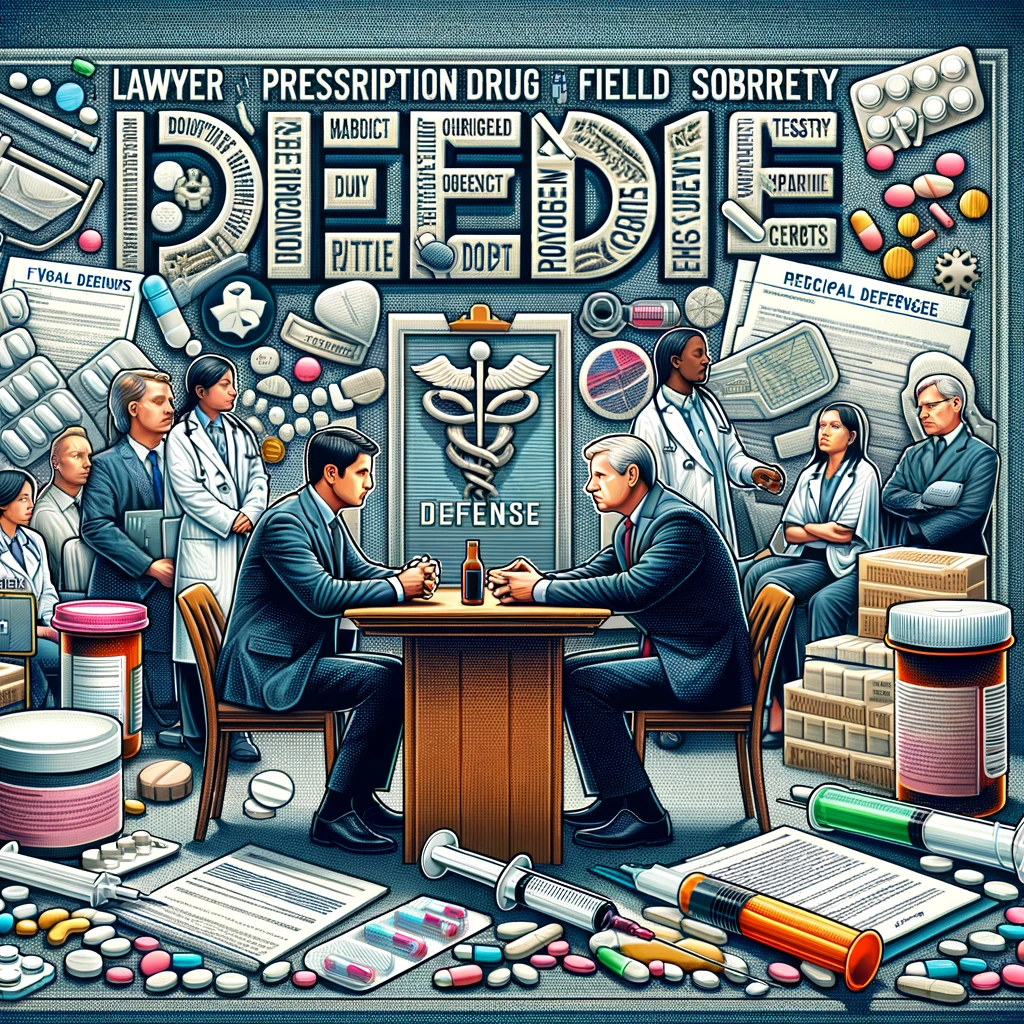
Preventive Measures and the Importance of Public Education
Prevention is a cornerstone of Texas’s approach to combatting drug-impaired driving. Initiatives focusing on education, medication labeling, and public awareness campaigns are essential. They aim to inform the public about the risks of driving under the influence of prescription drugs, promoting safer communities.
Legal Obligations and Responsibility: Navigating Medication and Driving
Individuals prescribed medication must understand their responsibilities under Texas law. Knowledge of how medication affects one’s driving ability is crucial. Ignorance is not a defense; drivers must assess their capability to operate vehicles safely. This responsibility is a key aspect of Texas’s legal approach to DWI.
A Comparative Look: Texas vs. Other States
Comparing Texas’s stance on DWI due to prescription drugs with other states reveals a spectrum of legal frameworks. Some states have specific thresholds for drug levels, while others, like Texas, do not. This comparison illuminates the diverse strategies employed across the nation to address this complex issue.
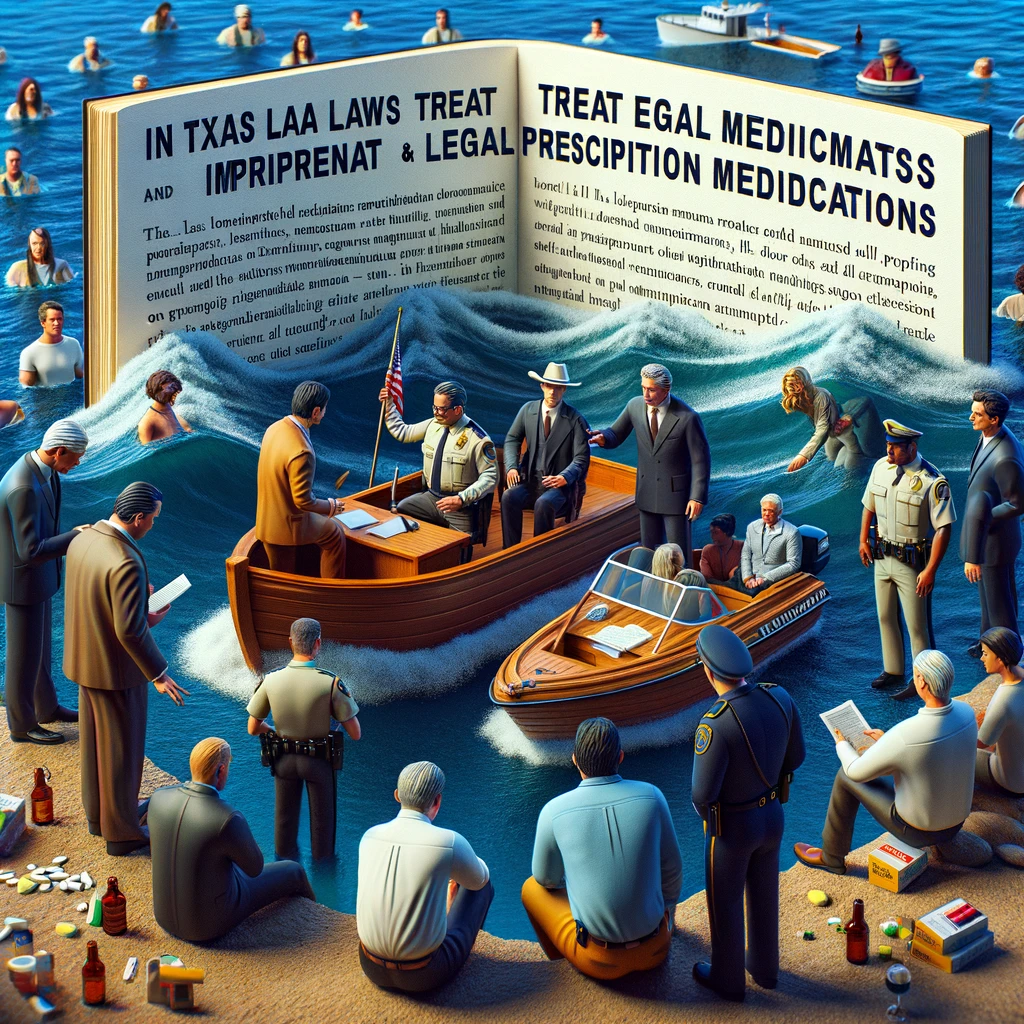
Navigating a Legal Perspective on Prescription Drugs and DWI Laws in Texas
Texas takes a serious stance on driving under the influence of prescription drugs, aligning with its commitment to road safety. Understanding the legal implications, penalties, and defense strategies is crucial for anyone facing a DWI charge in Texas. Moreover, public education and awareness are vital in preventing drug-impaired driving incidents.
Through this detailed examination, our readers should now possess a thorough understanding of the nuances of Texas DWI laws as they pertain to prescription drugs. Remember, safety and legality go hand in hand when it comes to driving under the influence of any substance. Our law firm remains dedicated to providing clear, comprehensive legal guidance on this and other important matters.
Wrapping Up: Your Texas Roadmap to Prescription Drug DWI Wisdom
So, we’ve journeyed together through the legal badlands of Texas, navigating the twists and turns of DWI laws. It’s been quite the ride, hasn’t it? From understanding how that seemingly innocent morning antihistamine could affect your evening drive, to dissecting the serious consequences of getting behind the wheel while medicated.
Remember our friend from the introduction, cruising with the sun setting in the rearview mirror? Let’s not leave them stranded. Instead, let’s arm them—and you—with the knowledge to drive safely and legally in Texas.
Short answer toA Legal Perspective on Prescription Drugs and DWI Laws
Yes, your prescription can lead to a DWI charge in Texas. But armed with awareness and understanding, you can steer clear of legal potholes.
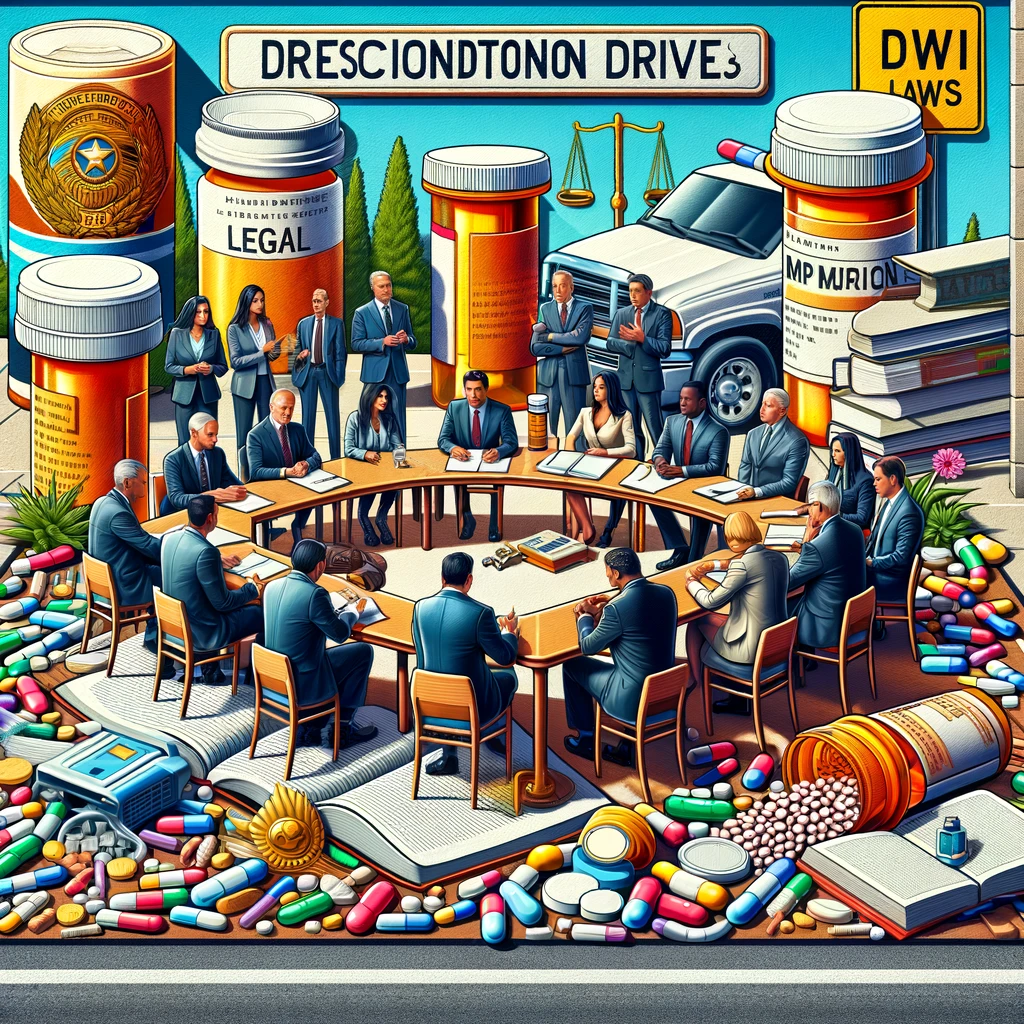
Why keep this article about a legal perspective on prescription drugs and DWI laws bookmarked?
Because life, much like Texas roads, can be unpredictable. Whether you’re a local, a newcomer, or just passing through, this guide is your legal GPS in the world of prescription drugs and driving.
So, next time you’re prescribed medication, remember this scenic drive through Texas law. And before turning the ignition, consider how that medication might impact your journey. Safe travels, legal eagles, and remember, in Texas, knowledge is not just power—it’s protection!

Other Related Articles:
- Prescription Drugs Monitoring Programs In Texas
- Prescription Drug Fraud: Laws and Penalties In Texas
- Texas’ Effort To Combat Prescription Drug Abuse
- The War On Drugs: Impact On Texas
- Defense Strategies For Prescription Drug Charges
- The History of Drug Legislation in Texas
- The Role Of Pretrial Services In Texas Drug Offenses
- The Impact Of Police Body Cameras On Drug Arrests In Texas
- Guardians of Justice: The Law Office of Bryan Fagan on CPS False Positives in Texas
- Drug Crimes vs Drug Offenses: What’s the Difference In Texas?
Frequently Asked Questions:
In Texas, it’s illegal to drive while impaired by prescription drugs, even if the drugs are legally prescribed by a doctor.
Texas has strict drug laws. Possession, sale, or manufacturing of illegal substances is punishable by law.
In Texas, driving while intoxicated (DWI) applies to alcohol, drugs, or any other substance that impairs one’s ability to drive.
Texas pharmacies may fill prescriptions for controlled substances from out of state if the prescription complies with all applicable laws.

